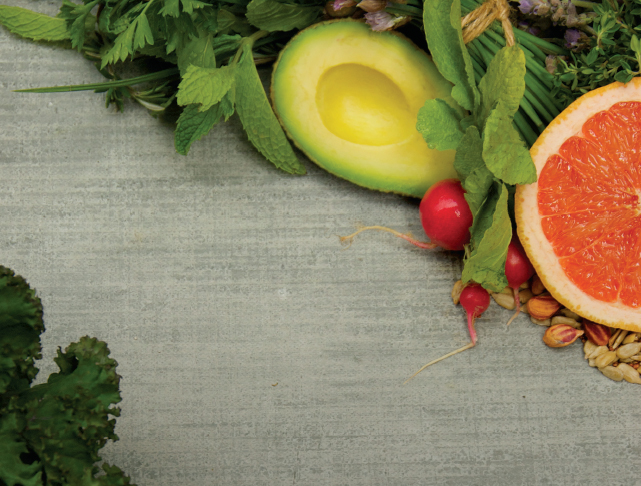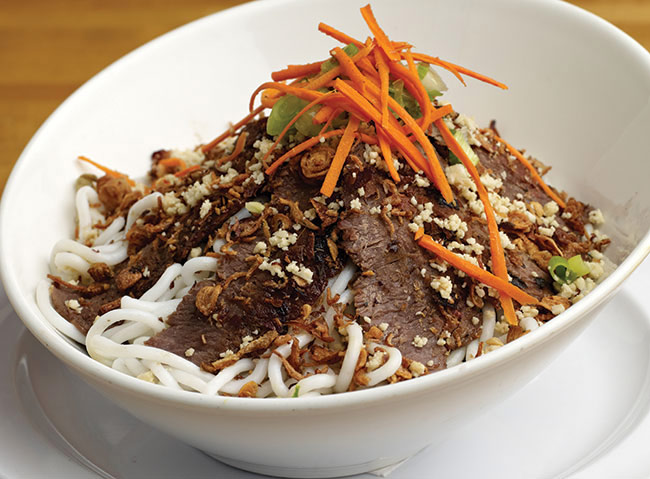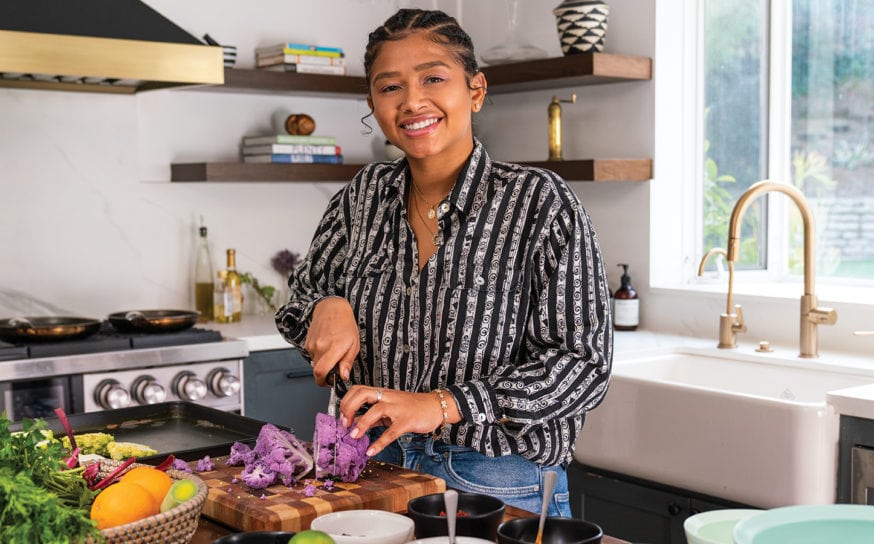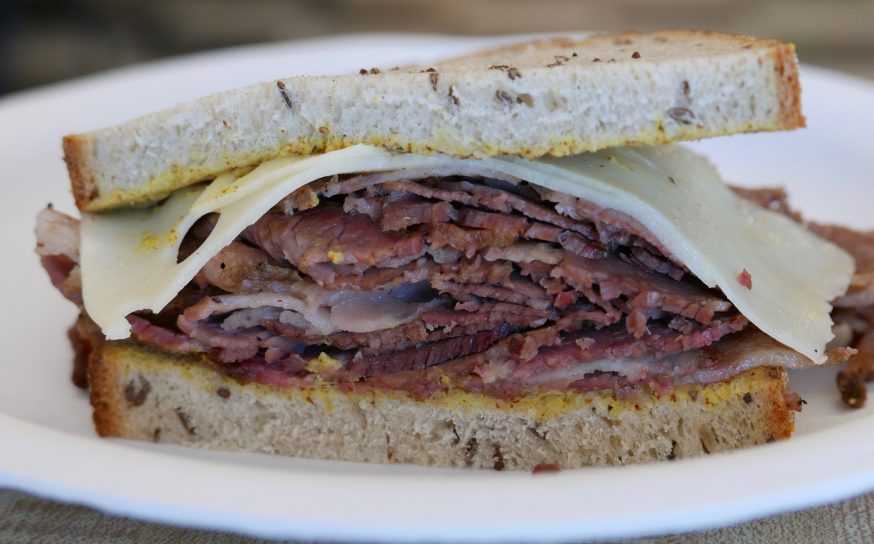
The Great 8
Essential and optimal intake for the healthiest body possible.
-
CategoryHealth
-
Written byKara Mickelson
You’ve heard it before: “You are what you eat.”
I confess. I like a reminder or two. Who wouldn’t want life to be simplified into small, pithy statements or declarations dotting your computer screen or refrigerator door?
However, the power of simplified messages is not the part reminding you to do something but the action that brings results. When it comes to your health and body, countless books, articles and TV shows are devoted to getting you pointed in the right direction. Why not actually put a simple plan in place to keep on track?
One key: avoiding processed, high-caloric, nutrient-depleted food. Instead make a vow to consume high-quality fresh fruits, legumes and vegetables. The human body needs fuel just like an automobile. The quality of what goes in will make a difference on what comes out, with the goal being high performance and proper mental, as well as physical, functioning.
So with that premise in mind, here are eight smart food choices to kick- start your best self.
Hydrating Foods
Experts say to drink eight glasses of water a day. Water, as well as foods with high water content, hydrates the body and flushes out toxins.
Natural whole foods, such as peaches, grapefruit, strawberries and melon, have the highest water content and are terrific as mid-day snacks. Radishes, carrots, zucchini, tomatoes, broccoli, celery and cucumber provide a nice crunch while also delivering water and nutrients to your cells.
High-Quality Proteins
Your body uses the amino acids in protein to build muscle.
Organic chicken and turkey, non-fatty white fish such as cod or occasionally trout, or wild salmon are all good choices. Eggs are
considered the perfect protein because they have all nine essential amino acids. The grain quinoa is also a complete protein. Plant-based protein found in legumes is easy for the body to process and digest and provides the needed amino acids when combined with a balanced diet.
Healthy Carbohydrates
Add complex carbohydrates to your diet that come from whole, unprocessed or minimally processed foods. Skip white bread, pastries and sodas in exchange for whole grains, vegetables, fruits and beans that deliver minerals, fiber, vitamins and important phytonutrients. Add pureed vegetables and beans to sauces as a thickening and flavoring agent.
Consider baking or grilling fruits for a sweet treat. Private chef and certified nutritionist Ariane Resnick states, “Thick slices of roasted sweet potato can be used to house everything from burgers to a light sandwich, and they hold up as you eat them.”
Nutrient-Dense Superfoods
The term “superfoods” generally refers to foods that are nutrient-dense, with lots of micronutrients, vitamins, minerals, phytochemicals and antioxidant capacities.
Think low calorie. Superfoods can be everyday foods or exotic items newer to the market. Kale is top on the list, but try wrapping your sandwich ingredients in Swiss chard next time. Include potent herbs and greens such as mustard, watercress and basil in salads and sauces.
Fiber-Rich Foods
Soluble and insoluble fiber help with weight loss by creating a full sensation and pushing waste and toxins through the digestive system. Artichokes, split peas and beans are good sources of fiber that can be blended for a sauce base, dip or sandwich spread. Liquid-absorbing chia seeds (toss some in your next smoothie) provide a healthy dose of fiber and create a thick, pudding-like texture.
Good Fats
These foods offer healthy, essential fatty acids along with other nutrients to help sustain energy and help metabolize fat. Nuts, seeds and avocados, whole or blended, make great spreads and are terrific in salads. The creamy texture of avocados can also be used as a base for chilled summer soups or salad dressings. Use light coconut- or seed-based “milks” (without additives) for your coffee or in sauces or soups.
Strategic Food Swaps
While cutting out processed sugar and oil is the healthiest way to go, most people struggle to find delicious, satisfying alternatives. Wildcrafted goldenberries are like nature’s SweeTARTS without processed sugar. They offer a concentrated boost of antioxidants and anti-inflammatory bioflavonoids.
Try adding sea salt to seeded, dried dates or drizzle date syrup or coconut nectar over roasted fruit for dessert. Use pureed fruit like bananas and peaches to add moisture to baked goods instead of vegetable or canola oil. Get creative and experiment; you may be surprised what you find.
Enzyme-Rich Raw
Foods that are organic, unprocessed, living plant foods—vegetables, nuts, seeds, legumes and seaweeds that have not been heated or cooked above 104º—are considered raw. They retain their natural enzymes and have high nutrient values. Raw food enzymes aid digestion. Proponents claim that nails get stronger, skin gets smoother, the mind works better and sleep improves.
Start slowly introducing more raw foods into your diet. Give green vegetable drinks a try. We love spinach, bananas, dates and peanut butter with a little almond milk. Soak some raw oat groats overnight for a version of oatmeal. Make your own nut or seed “milks” without added oils, artificial flavorings and sugars. Practice sprouting your own seeds and focus on quality ingredients versus quantity.
The Building Boom in the Valley for Senior Living Communities Has Escalated
Upscale livin’ for active retirees.











